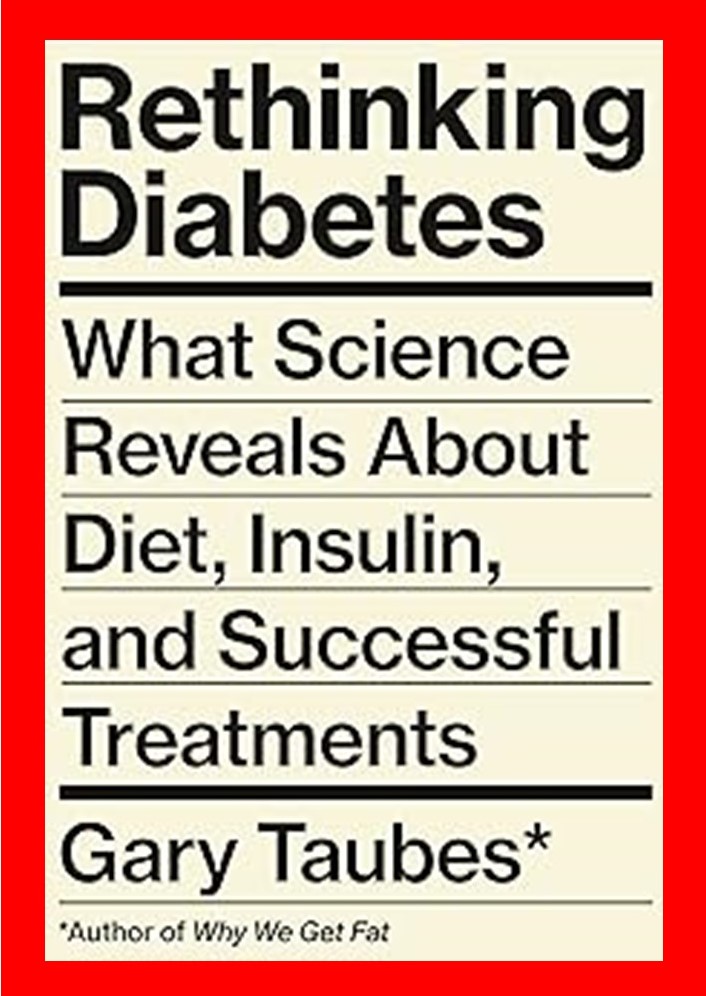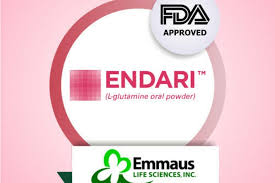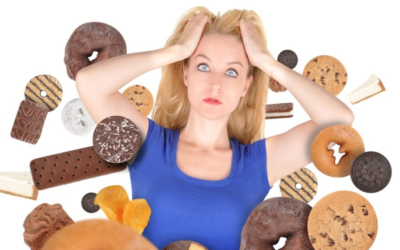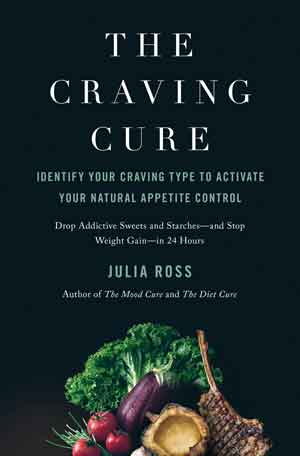A Review of Rethinking Diabetes: What Science Reveals About Diet, Insulin, and Successful Treatments

P.S. THE ANSWER TO THE KETO QUESTION
Many recipients of my blog on Rethinking Diabetes wrote asking if my review was a recommendation for a Keto diet. Thanks for asking.
-
“Yes”, is Taubes’ answer.
-
Here’s my answer:
Our Virtual Clinic’s pre-diabetic clients and our Type II diabetics who are not dependent on insulin often do just fine on foods that emphasize protein and fat, but include whole (not refined) carbs like beans, yams, and whole grains. We call this a Herder-Planter diet because it evolved fairly recently, over the last 20,000 years. Our health and weight were optimal on it till after 1970, when the dietary apocalypse began.
Fewer Type Is and truly insulin-dependent Type IIs (whose pancreases can no longer produce insulin) come to us, but they usually do best on Hunter-Gatherer i.e., Keto-ish diets (as long as they get enough calories from fat and protein.) This is especially true for those with Type O blood, we have found.
Note: Initially, all clients take the amino acid supplements that stop their cravings for what I call Techno-Karbz. This ensures compliance long term (a real problem for many Keto-attempters).
See Richard Bernstein M.D.’s excellent dietary recommendations, especially for those with Type I and insulin-dependent Type II long predate the current ‘Keto Kraze’. He is a Type I diabetic himself (and Taubes likes him too)!
The Craving Cure has lots more on all of the above and I’ll share some of it’s 30 pages specifically on diabetes recovery later this month.
IT’S JUST OUT!
There’s nothing that deserves rethinking more than diabetes! It’s incidence shot up from less than 1% in 1960 to 50% in 2010. (This includes the brand new pre-diabetes category, at 20%.) The rates in India, China, and the Middle East are even higher!
Science journalist Taubes has been making stunning dietary news since his New York Times cover story was published in 2002. That story single handedly reeducated us about the value of fatty foods like butter.
Here Taubes trots us through the murky history of the medical and nutritional science behind diabetes. One of the most fascinating mysteries that Taubes tracks has to do with obesity. Why do diabetics become obese when they start taking insulin? Taubes quotes early physicians rejoicing in how quickly emaciated Type I Diabetes victims recovered weight as well as glucose balance on their newly invented insulin medication. But insulin turns out to be uncontrollable in it’s fat storing powers as Taubes explains in Chapter 7, starting on page 150. That’s why the announcement of our diabetes epidemic in 1995 was followed, just seven years later, by the announcement of our obesity epidemic.
But Taubes goes on documenting bizarre twists and turns, notably focusing on the massive dietary errors that have perpetuated, rather than cured, the disease. He ends with the encouraging success of many diabetics who adopt and sustain a ketogenic diet.
Of course, I’m concerned about the millions of diabetics who cannot stick with a keto diet. They tend to be struggling with overpowering brain-generated cravings for the drug-like high carbohydrate foods that our population is primarily feeding on in the 21st century. These struggling diabetics often benefit from a pre-keto nutrient supplementation process that eliminates their powerful and deadly cravings.
Look for upcoming excerpts from the Craving Cure on diabetes – and my updates !
P.S. THE ANSWER TO THE KETO QUESTION
Many recipients of my above blog on Rethinking Diabetes wrote asking if my review was a recommendation for a Keto diet. Thanks for asking.
-
“Yes”, is Taubes’ answer.
-
Here’s my answer:
Our Virtual Clinic’s pre-diabetic clients and our Type II diabetics who are not dependent on insulin often do just fine on foods that emphasize protein and fat, but include whole (not refined) carbs like beans, yams, and whole grains. We call this a Herder-Planter diet because it evolved fairly recently, over the last 20,000 years. Our health and weight were optimal on it till after 1970, when the dietary apocalypse began.
Fewer Type Is and truly insulin-dependent Type IIs (whose pancreases can no longer produce insulin) come to us, but they usually do best on Hunter-Gatherer i.e., Keto-ish diets (as long as they get enough calories from fat and protein.) This is especially true for those with Type O blood, we have found.
Note: Initially, all clients take the amino acid supplements that stop their cravings for what I call Techno-Karbz. This ensures compliance long term (a real problem for many Keto-attempters).
See Richard Bernstein M.D.’s excellent dietary recommendations, especially for those with Type I and insulin-dependent Type II long predate the current ‘Keto Kraze’. He is a Type I diabetic himself (and Taubes likes him too)!
The Craving Cure has lots more on all of the above and I’ll share some of it’s 30 pages specifically on diabetes recovery later this month.
.



